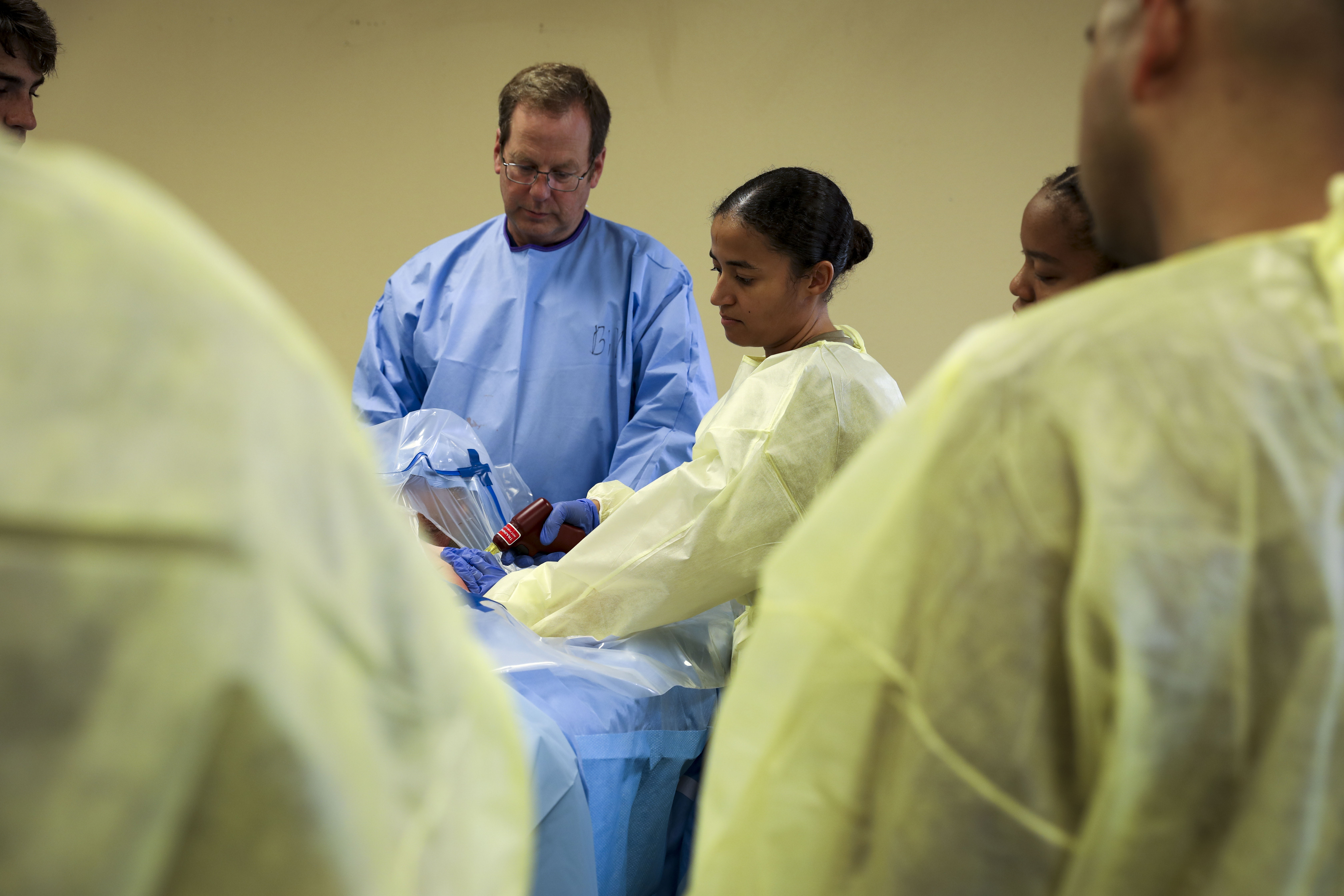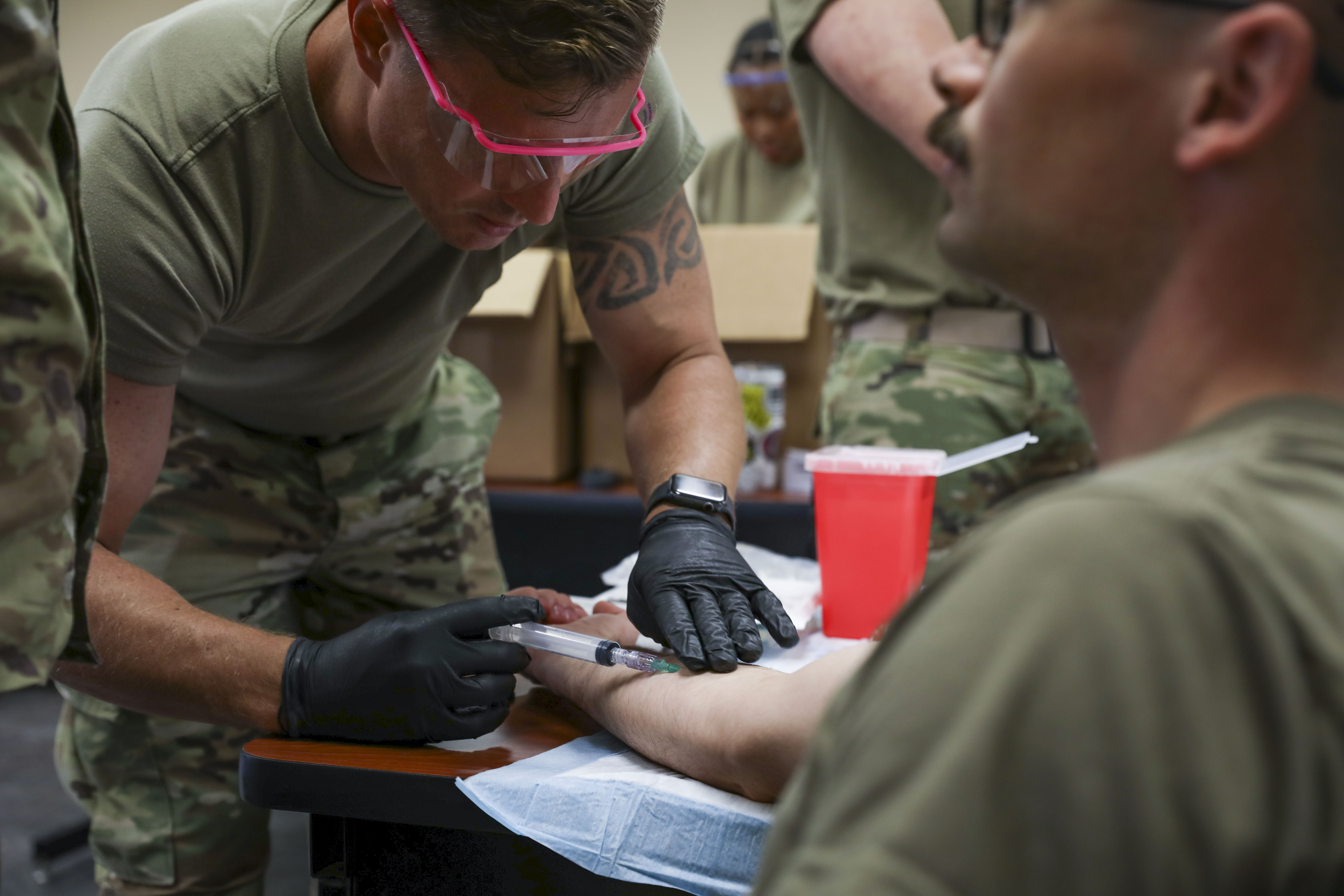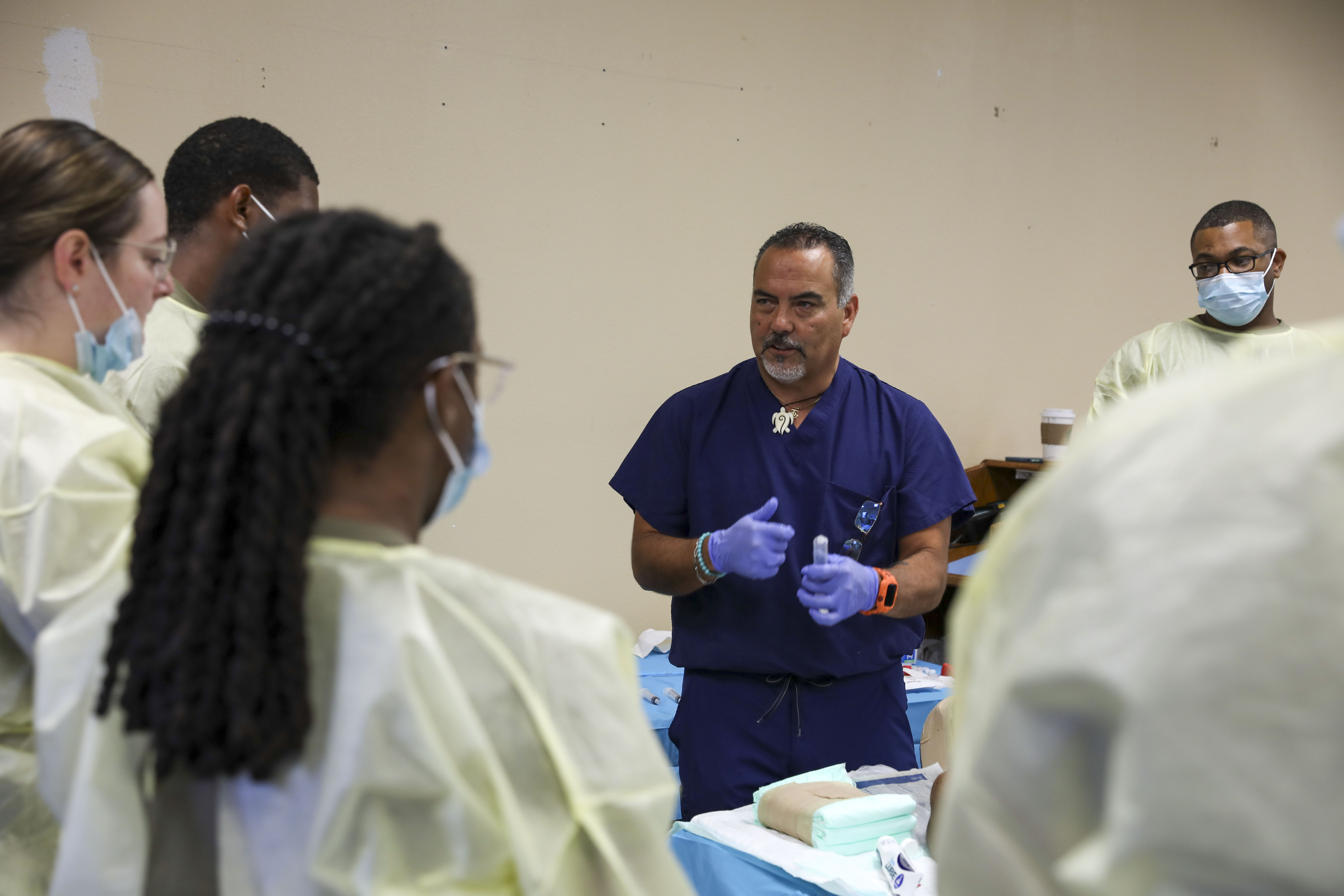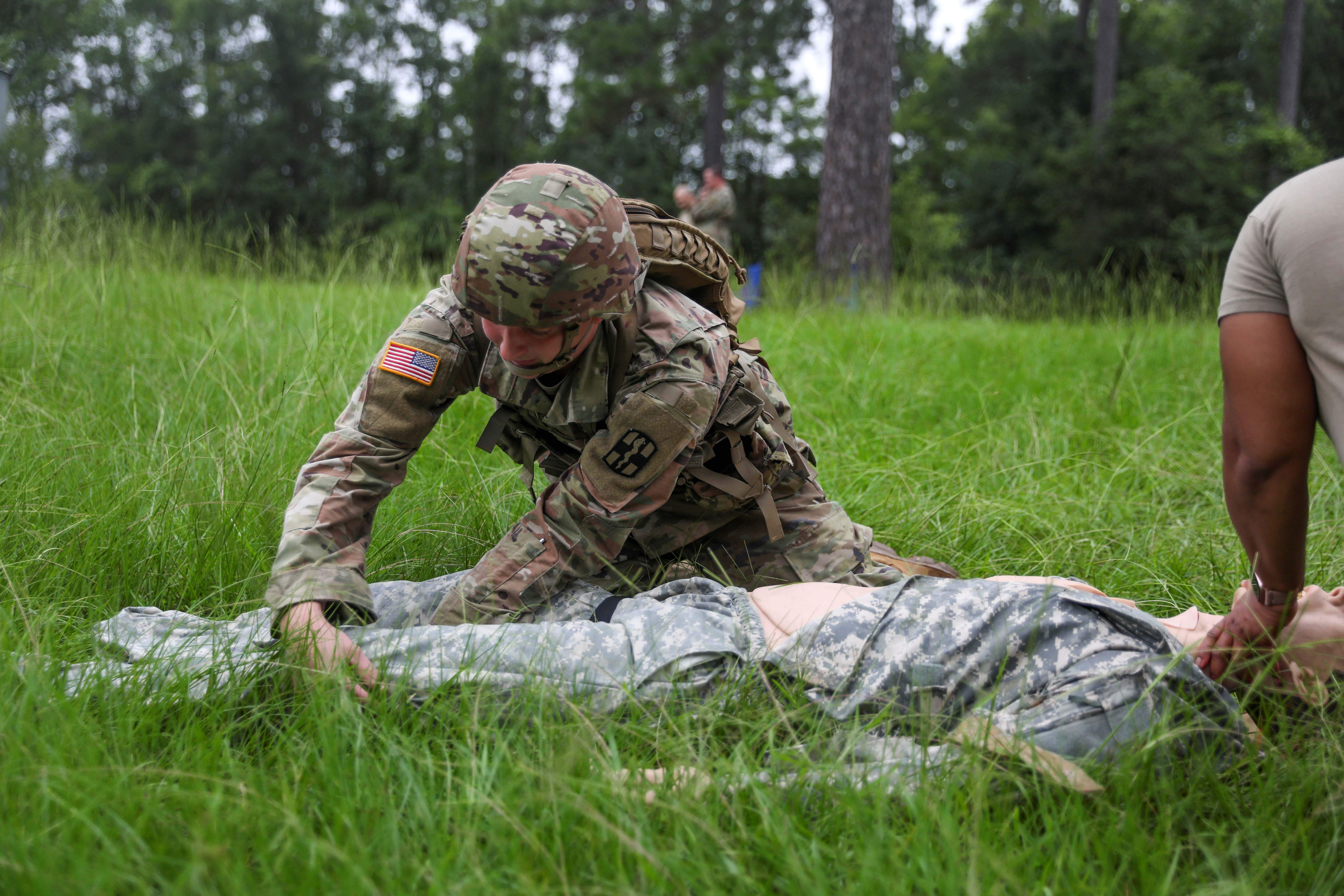La. Guard sustainment course ensures medics are trained and ready
By Sgt. Danny Hough, Louisiana National Guard Public Affairs Office
PINEVILLE, La. – The Louisiana National Guard’s Combat Medic Sustainment Program recently conducted a 10-day course for combat medics at Louisiana National Guard Training Center Pineville, Louisiana, July 18-28.
A total of 44 medics, including two medics from the Regular Army, participated in the course to renew their National Registry of Emergency Medical Technicians and CPR certifications, which are required to be renewed every two years.
 First Lt. Alicia Payton, the CMSP officer in charge, explained that K-9 Tactical Combat Casualty Care now falls under special population treatment, which also includes pediatrics and elderly treatment.
First Lt. Alicia Payton, the CMSP officer in charge, explained that K-9 Tactical Combat Casualty Care now falls under special population treatment, which also includes pediatrics and elderly treatment.
“Within this course, we’ve done pediatric advanced life support as well as the K-9 treatment. The special population training provides a branch out for treatment because whether it’s a local humanitarian mission or even being on a combat deployment overseas, we are not just taking care of our people but also anybody else that needs care,” said Payton. “The training allows the medics to be more knowledgeable and provide the skill base to be more comfortable with pediatrics, which a general combat medic course will not give them.”
In addition to managing battlefield trauma, treating heat and cold injuries, starting IVs, administering medications and performing K-9 TCCC, the medics had the opportunity to participate in a cadaver lab. This lab was coordinated through the LANG State Surgeon’s Office, Teleflex Medical Equipment and the Medical Education & Research Institute.
 “I was really excited because we don’t get the opportunity that often to train on live tissue,” said Sgt. Taya Milligan, a medic with the 415th Military Intelligence Battalion. “Being able to actually feel human skin and how it responds to different treatments that we give them is awesome.”
“I was really excited because we don’t get the opportunity that often to train on live tissue,” said Sgt. Taya Milligan, a medic with the 415th Military Intelligence Battalion. “Being able to actually feel human skin and how it responds to different treatments that we give them is awesome.”
Other medics expressed that going through the training and working on the cadaveric tissue was humbling and reminded them of the humanity in the medical world.
Once all classroom hours are completed, medical and trauma lanes are conducted to evaluate the medics. While conducting the lanes, medics are assessed on their execution of the combat casualty assessments and medical evaluations of patients.
 For some medics, the LANG’s sustainment course provides the opportunity to train on interventions they do not regularly encounter as well as new to them interventions.
For some medics, the LANG’s sustainment course provides the opportunity to train on interventions they do not regularly encounter as well as new to them interventions.
“There’s a lot of stuff that I have not done, like the Advanced Life Saving, where we learned how to read EKGs correctly and identify various sicknesses or problems, and we got a new certification for it,” said Sgt. Emilee Wilson, a medic with 3rd Battalion, 156th Infantry Regiment.
Payton stated that the LANG’s combat medic sustainment course is currently one of the top training programs in the country. She also explained that they added training for walking blood banks this year. Before it was a practice only conducted in special populations, and now it’s becoming more available.

